With a respiratory therapy degree, you could pursue certification as a respiratory therapist and help improve the health of patients without becoming a nurse or doctor.

Our breath is our life, and respiratory therapists spend their careers helping people breathe better. Because of this, respiratory therapy is not only a rewarding field but also a lucrative one.
Editorial Listing ShortCode:
Read on to discover how you can make a difference with a respiratory therapy degree.
Online Respiratory Therapy Degrees

Earning a respiratory therapy degree can help prepare you to become a practicing respiratory therapist. RTs help examine and treat patients with respiratory issues and diseases.
Editorial Listing ShortCode:
An online respiratory therapy degree program will expose you to a variety of topics related to diagnosing and providing respiratory care. While completing this degree, you can expect to encounter and learn:
- In-depth medical terminology
- Respiratory pharmacology
- How to manage pulmonary disease and treat different populations
- How to manage ventilators, artificial airway devices, and other pulmonary equipment
- How to diagnose lung and breathing disorders
- How to administer gases like oxygen and nitric oxide
- How to conduct physical exams and analyze blood specimens
- How to respond in critical care situations
- How to educate patients, friends, and family on respiratory diseases
- How to work with doctors to determine adequate treatment options
You may also have the opportunity to focus on specialized care fields within respiratory therapist schooling. Common specialty areas include neonatal and pediatrics, pulmonary rehab, critical care, in-home care, sleep disorders, and more.
Some programs also have you complete hands-on clinical experience prior to graduation. This could provide you with in-field experience that may enhance your opportunities for related careers in the medical field. Earning a CoARC accredited degree in respiratory therapy is a common requirement for certification and licensure.
Respiratory Therapy Careers & Salaries
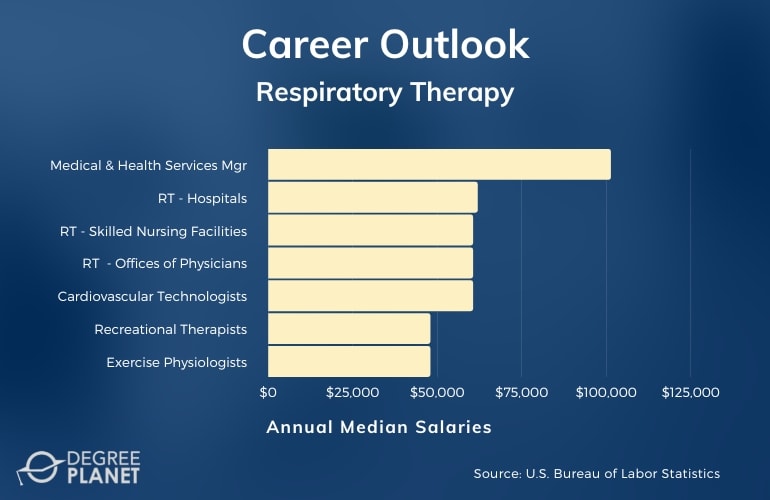
Respiratory therapy degree holders typically follow the path of becoming respiratory therapists. RTs can work in a variety of medical settings, such as hospitals, nursing homes, sleep centers, and more.
Respiratory therapists will evaluate and treat patients with lung and breathing conditions, such as asthma, sleep apnea, cystic fibrosis, and more. They may also run diagnostic tests, make physical examinations, analyze treatment options, and educate patients and family members.
According to the Bureau of Labor Statistics, the median annual wage for respiratory therapists is $61,830.
| Careers | Annual Median Salaries |
| Medical and Health Services Managers | $101,340 |
| Respiratory Therapists — Hospitals | $61,940 |
| Respiratory Therapists — Skilled Nursing Facilities | $60,570 |
| Respiratory Therapists — Offices of Physicians | $60,570 |
| Cardiovascular Technologists and Technicians | $60,570 |
| Recreational Therapists | $47,940 |
| Exercise Physiologists | $47,940 |
| Medical Assistants | $37,190 |
| Occupational Therapy Aides | $33,560 |
| Home Health and Personal Care Aides | $29,430 |
Employment of respiratory therapists is expected to grow much faster than average, with a projected growth rate of 14% over the next ten years (Bureau of Labor Statistics).
Within respiratory therapy practice, graduates may also choose to specialize in related careers. Some go on to become sleep technologists, intensive care unit respiratory therapists, pulmonary rehabilitation specialists, and more.
Editorial Listing ShortCode:
Respiratory therapy programs can also help students develop clinical medical skills that can be applied to a variety of assistant positions within the healthcare field.
Respiratory Therapy Bachelor’s Curriculum & Courses

The curriculum of a respiratory therapist bachelors degree program can vary depending on your school, but here are some common types of courses you may come across:
- Respiratory Care Equipment and Techniques: This course overviews the clinical application of respiratory equipment used in hospitals.
- Neonatal Respiratory Care: This course reviews the research, theories, and procedures involved in delivering neonatal respiratory care.
- Respiratory Pharmacology: This course studies cardiopulmonary medications, including dosages, mixtures, and principles of pharmacology.
- Pulmonary Disease Management: This course overviews diagnostics, treatment, and pathophysiology of pulmonary diseases and conditions like asthma, COPD, and emphysema.
- Medical Ethics: This course covers federal and state healthcare laws and regulations as well as ethical dilemmas that may be presented in respiratory therapy.
- Anatomy and Physiology: This course overviews the anatomical structures of the human body and its integrated systems.
- Integrative Systems Physiology: This course overviews the interconnected systems of the human body, along with how they function in healthy and diseased conditions.
- Introduction to Mechanical Ventilation: This course prepares graduates to use mechanical ventilators, covering mechanical ventilation technology and oxygenation.
- Disease Management: This course covers the diagnostic and treatment methods of pulmonary issues and diseases, and it also covers how to communicate information with patients.
- Respiratory Therapy Research: This course focuses on how to conduct effective research, including elements of data collection.
Most respiratory therapy degree programs also require the completion of clinical experience hours.
How to Choose an Online RT Degree Program

When choosing an online RT program, it’s essential to make sure your program is accredited by the Commission on Accreditation for Respiratory Care (CoARC). Completing a CoARC accredited RT program is a common requirement for certification.
Here are some other factors to consider when choosing a program:
- Location. If you need to complete any hands-on classes, you can consider whether you prefer a school that’s nearby or that you have to travel to.
- Duration. Program length is another consideration. Your preferred timeline may depend on how quickly you would like to complete your studies and begin practicing.
- Hands-On Training. Completing clinical hours is a common part of RT programs. You may want to verify that your school has a great hands-on experience connection since these may result in career opportunities.
Faculty and counselors also play a role in making your education an enjoyable and helpful process. So, you might consider researching or talking to a few staff members before applying.
How to Become a Respiratory Therapist

The path to becoming a respiratory therapist begins with schooling, but the process doesn’t end there. Below are the common steps to becoming a practicing respiratory therapist:
- Complete approved degree program. It’s necessary to complete a CoARC accredited degree program in respiratory therapy. An associates degree is required, but some employers prefer applicants with a bachelors degree.
- Complete clinical hours. You’ll complete the required amount of clinical hours within your degree program. This is usually required to obtain certification.
- Obtain CRT credential. Upon graduation, you can sit for the NBRC’s Therapist Multiple Choice (TMC) Examination to obtain the entry-level Certified Respiratory Therapist (CRT) credential.
- Obtain RRT credential. After earning your CRT credential, you may qualify to sit for the Clinical Simulation Examination (CSE) to obtain the Registered Respiratory Therapist (RRT) credential. This is the highest level credential in the field. Obtaining RRT certification may be optional depending on your state and employer.
- Obtain licensure. Once you earn certification, you can obtain the required licensure for your state. States use the CRT or RRT credential as the basis for state licensure.
Almost all states require that respiratory therapists earn the CRT credential before obtaining their state license, but a few do require the RRT credential. It’s beneficial to check your state’s specific requirements. Licensure for respiratory therapists is required in all states except Alaska.
Bachelor in Respiratory Therapy Admissions Requirements

Admissions requirements for a respiratory therapist major can vary depending upon your school. Below are some common requirements for bachelor programs:
- Admissions application
- Official high school transcripts
- SAT or ACT scores (if required)
- Admissions essay
Some schools may also require a specific GPA minimum. On the other hand, a growing number of schools no longer require standardized test scores from the SAT or ACT. You can contact an admissions counselor to discover your prospective school’s exact requirements. Many schools also post their admissions criteria on their website.
Accreditation
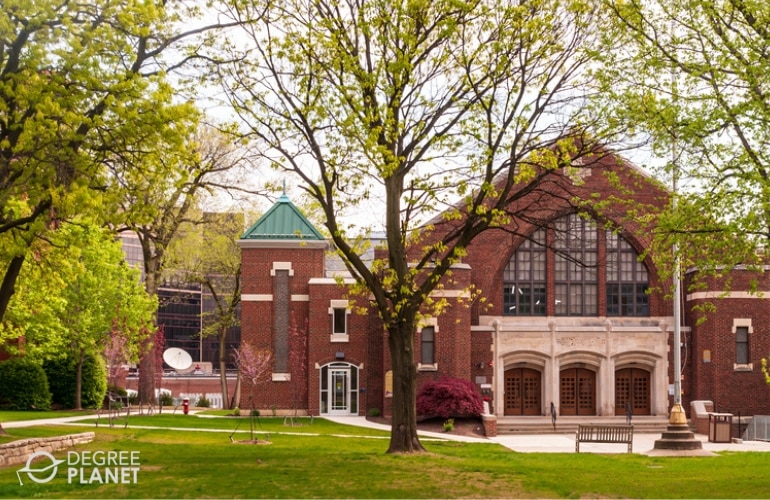
When researching colleges or universities, it’s beneficial to look for one that is accredited by a credible organization. Accreditation can impact your eligibility to obtain financial aid as well as professional certification and licensure.
Editorial Listing ShortCode:
Regional accreditation is considered the most widely recognized and prestigious accreditation. It’s strategic to verify the accreditation status of any prospective schools before applying. You can double-check a school’s accreditation by visiting the website of the Council for Higher Education Accreditation (CHEA).
CoARC Accreditation
The Commission on Accreditation for Respiratory Care (CoARC) is the primary programmatic accreditor for respiratory care degree programs.
CoARC is nationally recognized and determines a respiratory therapy program’s quality and eligibility. This programmatic accreditation could determine whether your degree is recognized by potential employers in the future, and it’s also required to sit for the CRT exam. CoARC accredited programs are evaluated annually to ensure a set of standards are continually met.
Respiratory Therapy Licensure and Certifications

To become a practicing respiratory therapist, graduates are required to obtain the Certified Respiratory Therapist (CRT) credential and receive state licensure.
Here are the typical steps to becoming certified:
- Hold at least an associates in respiratory therapy from a CoARC accredited program
- Pass the NBRC’s Therapist Multiple-Choice (TMC) Exam
If graduates wish to obtain the higher-level credential of Registered Respiratory Therapist (RRT), they must pass both the TMC Exam and the Clinical Simulation Examination (CSE). Not all states require an RRT credential for licensure, but it may lead to opportunities for advancement. Licensure is required for RTs in all states except Alaska.
Financial Aid and Scholarships
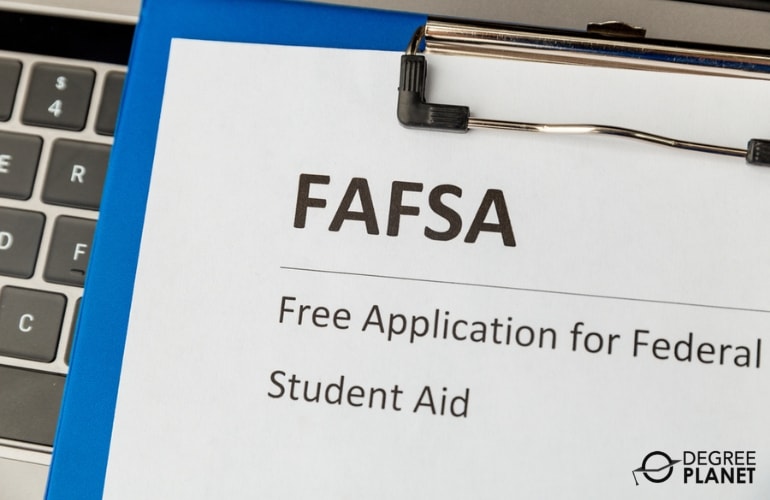
Most students pursuing RT schooling seek financial assistance to help pay for their studies. For starters, you could consider scholarship and grant opportunities. These are often available for different types of majors and specific life situations.
You can also look into federal and state aid programs. You might qualify for aid in the form of student loans based on your financial situation and state. To apply and determine your eligibility for need-based aid, you can fill out the Free Application for Federal Student Aid (FAFSA). Some employers also provide assistance to employees who are looking to further their education.
What Degree Do You Need to Be a Respiratory Therapist?

The minimum education requirement for respiratory therapists is an associates degree that’s accredited by the Commission on Accreditation for Respiratory Care (CoARC).
Many students, though, choose to earn a bachelors in respiratory therapy for enhanced employment and career opportunities. Some employers prefer to hire RTs who have a bachelors. It’s also necessary to complete a CoARC accredited RT program in order to sit for the Certified Respiratory Therapist (CRT) exam. Licensure is required by all states except Alaska.
Many employers are also moving toward preferring the Registered Respiratory Therapist (RRT) credential, which is considered the standard of excellence for respiratory care professionals.
What Can You Do with a Bachelors in Respiratory Therapy Degree?

Completing a respiratory therapist degree program can help you meet the respiratory therapist education requirements. It can also help prepare you to sit for the CRT and RRT examinations in order to become a certified or registered respiratory therapist.
Respiratory therapists can work in a range of healthcare facilities, including clinics or hospitals, where they examine and treat patients with breathing and lung problems. Graduates may also choose to specialize in neonatal, pediatric, or adult critical care. Some professionals branch off into adjacent areas, becoming sleep technicians, clinical specialists, or even researchers.
What Does a Respiratory Therapist Do?

In short, a respiratory therapist examines and treats patients experiencing breathing issues. Respiratory therapists are responsible for performing chest examinations and maintaining pulmonary and breathing equipment. They often create treatment plans to improve lung health and address chronic breathing problems, such as asthma and COPD.
Respiratory therapists may also help maintain life support, evaluate oxygen levels, and keep records of patients’ prognoses. They mainly work in specialized clinics or primary care offices as well as in hospitals.
How Long Does It Take to Get an Online Respiratory Therapy Bachelor’s Degree?

Enrolling full-time and following a traditional 16-week semester will generally allow you to finish a bachelors degree in 4 years.
Some online programs follow an 8-week semester and let you stay continuously enrolled year-round, including during the summers. If you follow this timeline, you may be able to finish in less time. Completing your degree part-time could extend your completion time.
Editorial Listing ShortCode:
You can speak to your potential school to discover their timeline options and see if there are any acceleration tracks available.
What’s the Difference Between an RRT vs. CRT?

While there is some overlap between CRTs and RRTs, these professionals hold different credentials.
- Certified Respiratory Therapist (CRT): A CRT holds an entry-level certification. Their credential signifies they have passed the Therapist Multiple-Choice (TMC) exam through the National Board for Respiratory Care (NBRC).
- Registered Respiratory Therapist (RRT): An RRT holds a more advanced certification. They have passed both the TMC Exam as well as the Clinical Simulation Examination (CSE).
The CRT exam is required by nearly all states to become a respiratory therapist, while only some states require respiratory therapists to be RRTs.
Is a Bachelor’s Degree in Respiratory Therapy Worth It?

Yes, a bachelor’s degree in respiratory therapy is worth it for many students. Aside from being a rewarding line of work, respiratory therapy is also a growing field.
Employment of respiratory therapists is expected to increase much faster than average, with the Bureau of Labor Statistics projecting 14% job growth for RTs over the next ten years. While an associates is the minimum education requirement for respiratory therapists to practice, some employers prefer to hire those with a bachelors.
Editorial Listing ShortCode:
Diverse experience with medical terminology and other medical-related topics and procedures may also lead to adjacent career opportunities in the medical field.
Universities Offering Online Bachelors in Respiratory Therapy Degree Programs
Methodology: The following school list is in alphabetical order. To be included, a college or university must be regionally accredited and offer degree programs online or in a hybrid format.

Cardinal Stritch University offers a Bachelor of Science in Respiratory Therapy. Potential courses include Concepts in Mechanical Ventilation, Hemodynamic Monitoring and Assessment, and Leadership in Respiratory Therapy. Classes meet online, and each one is 6 weeks long. After finishing general education requirements, students can typically complete their major coursework in 2 years.
Cardinal Stritch University is accredited by the Higher Learning Commission.
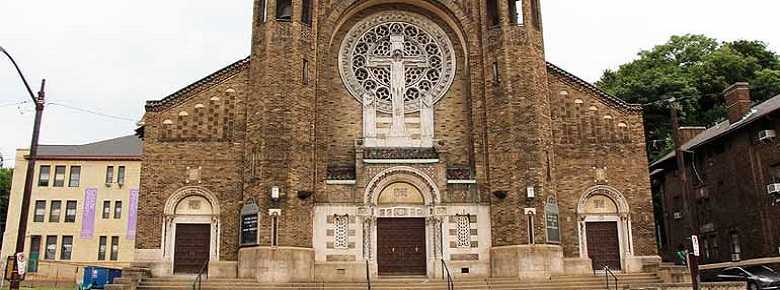
Carlow University offers a Bachelor of Science in Respiratory Therapy. Many graduates pursue roles as respiratory therapists, critical care specialists, pulmonary function technicians, or sleep technologists. The program requires the completion of 30 credit hours. Students attend classes in an asynchronous, online format designed to allow them to maintain other work and personal commitments.
Carlow University is accredited by the Middle States Commission on Higher Education.
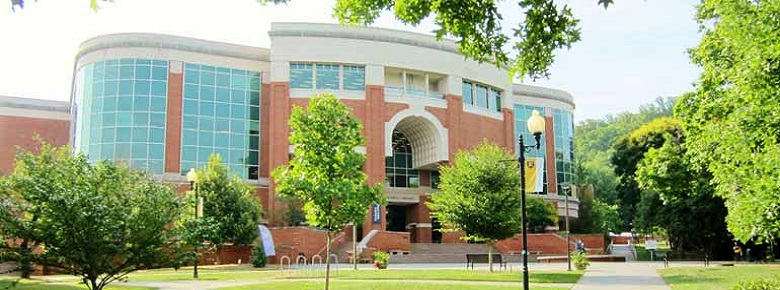
East Tennessee State University offers a Bachelor of Science in Respiratory Therapy. This program is designed for students who have previously completed an associate degree in the discipline. The curriculum aims to strengthen students’ existing communication, critical thinking, problem solving, research, and leadership skills. Students can complete the degree requirements 100% online.
East Tennessee State University is accredited by the Southern Association of Colleges and Schools Commission on Colleges.

Marian University—Wisconsin offers an online Bachelor of Science in Respiratory Therapy completion program for students with an associate degree. The curriculum covers concepts like healthcare administration, assessment and treatment, and research methods. The program admits new students 6 times yearly. Most students can complete their baccalaureate requirements in 18 months of full-time study.
Marian is accredited by the Higher Learning Commission.

Nebraska Methodist College offers a Bachelor of Science in Respiratory Therapy. This program may be an ideal next step for students who have previously completed an associate degree in the discipline and want to further their expertise. Students can select a concentration in Education and Research or Healthcare Management and Leadership. All classes meet fully online.
Nebraska Methodist College is accredited by the Higher Learning Commission.

The University of Cincinnati offers an online program for a Bachelor of Science in Respiratory Therapy. This program is designed to prepare students for Certified and Registered Respiratory Therapist exams.
The curriculum introduces students to respiratory issues, like asthma, chronic obstructive pulmonary disease, and lung cancer complications. On average, students can complete their studies in 2 years when attending part-time.
The University of Cincinnati is accredited by the Higher Learning Commission.

The University of North Carolina—Charlotte offers a Bachelor of Science in Respiratory Therapy. The curriculum seeks to help students develop critical thinking skills, increase their existing knowledge in the field, and learn how to promote evidence-based care. The program’s online learning format is designed with working professionals in mind. Incoming students can choose from two yearly start dates.
UNC Charlotte is accredited by the Southern Association of Colleges and Schools Commission on Colleges.

The University of Southern Indiana offers a Bachelor of Science in Respiratory Therapy. This program is intended for registered respiratory therapists seeking professional and academic advancement. The curriculum utilizes an entirely online learning format. Most students can complete the program’s 30 required credit hours in 4 semesters.
The University of Southern Indiana is accredited by the Higher Learning Commission.
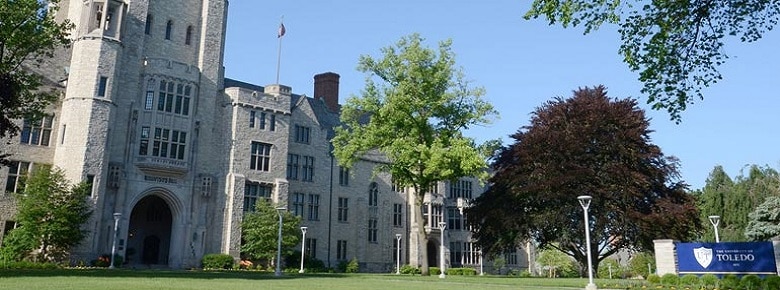
The University of Toledo offers a Bachelor of Science in Respiratory Therapy. Potential courses include Medical Ethics, Research Analysis in Respiratory Care, and Neonatal and Pediatric Respiratory Care. On average, students can finish the degree requirements in 2 years of part-time study. All classes meet 100% online.
The University of Toledo is accredited by the Higher Learning Commission.
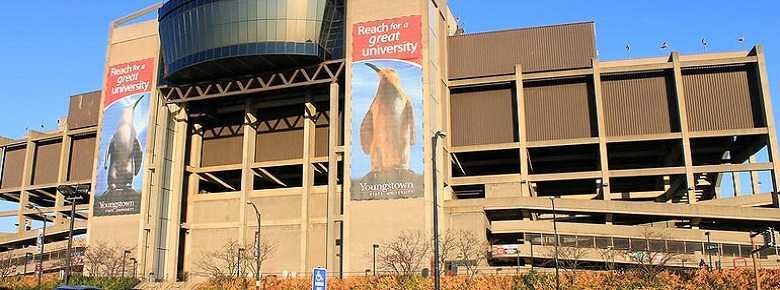
Youngstown State University offers an online program for a Bachelor of Science in Respiratory Care. This program is designed for students with an associate degree in the discipline hoping to continue their study and advance in the field. The program requires the completion of 140 credit hours. Courses cover concepts like care assessment, respiratory procedures, cardiopulmonary disease, pharmacology, and mechanical ventilation.
Youngstown State University is accredited by the Higher Learning Commission.
Getting Your Bachelor’s in Respiratory Therapy Online

As a respiratory therapist, you could be a forerunner in addressing respiratory issues and helping people breathe better every day.
Earning a bachelors in respiratory therapy online is a convenient path to a rewarding career in this growing and dynamic field. It can help you prepare for professional certification, and it may also open up further education opportunities in the future. There are many specialties within respiratory therapy that you can choose from, including working with adults, babies, and those with chronic conditions.
You can start exploring accredited schools today to find the respiratory therapy degree program that best fits your interests and goals.

